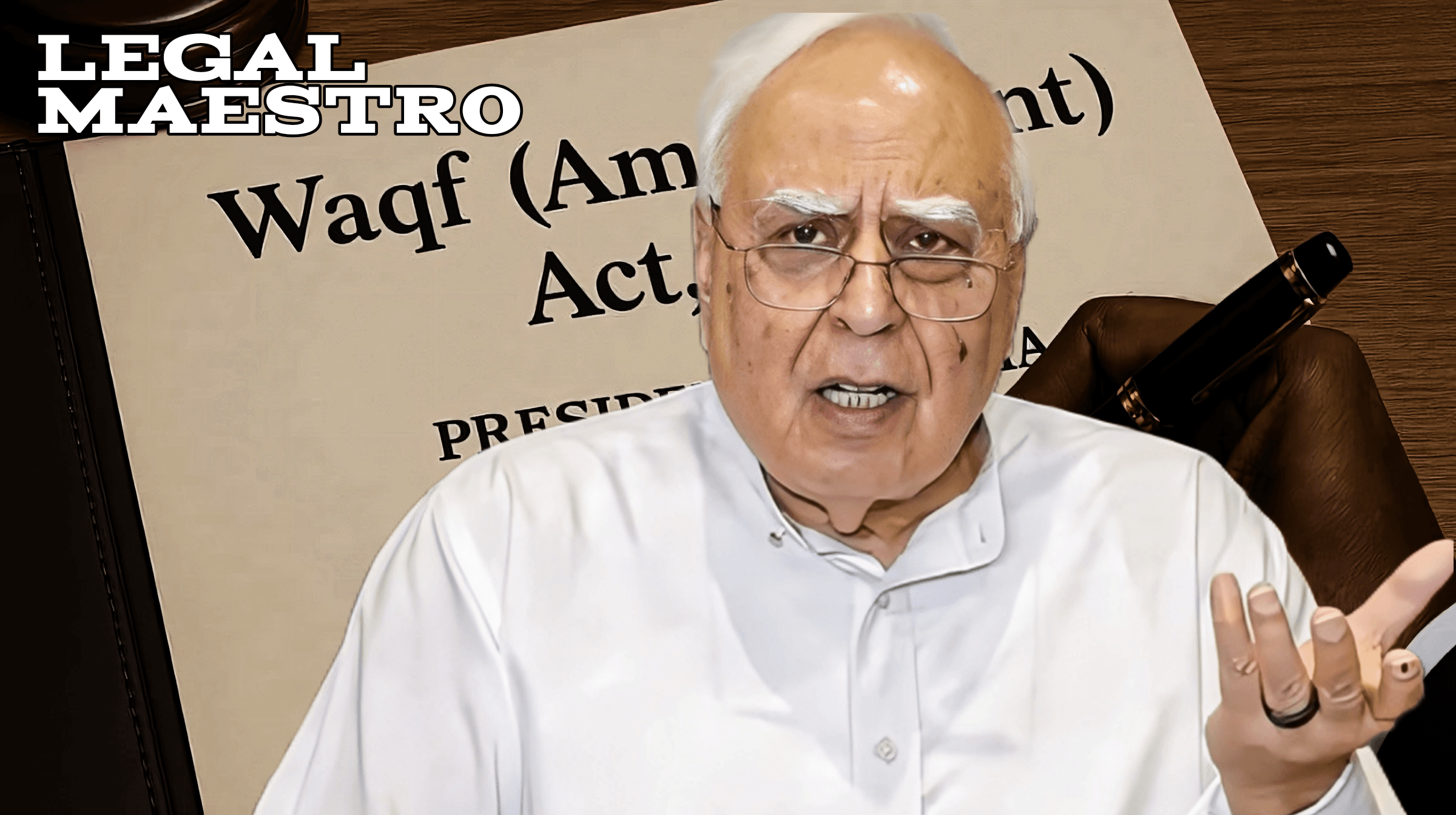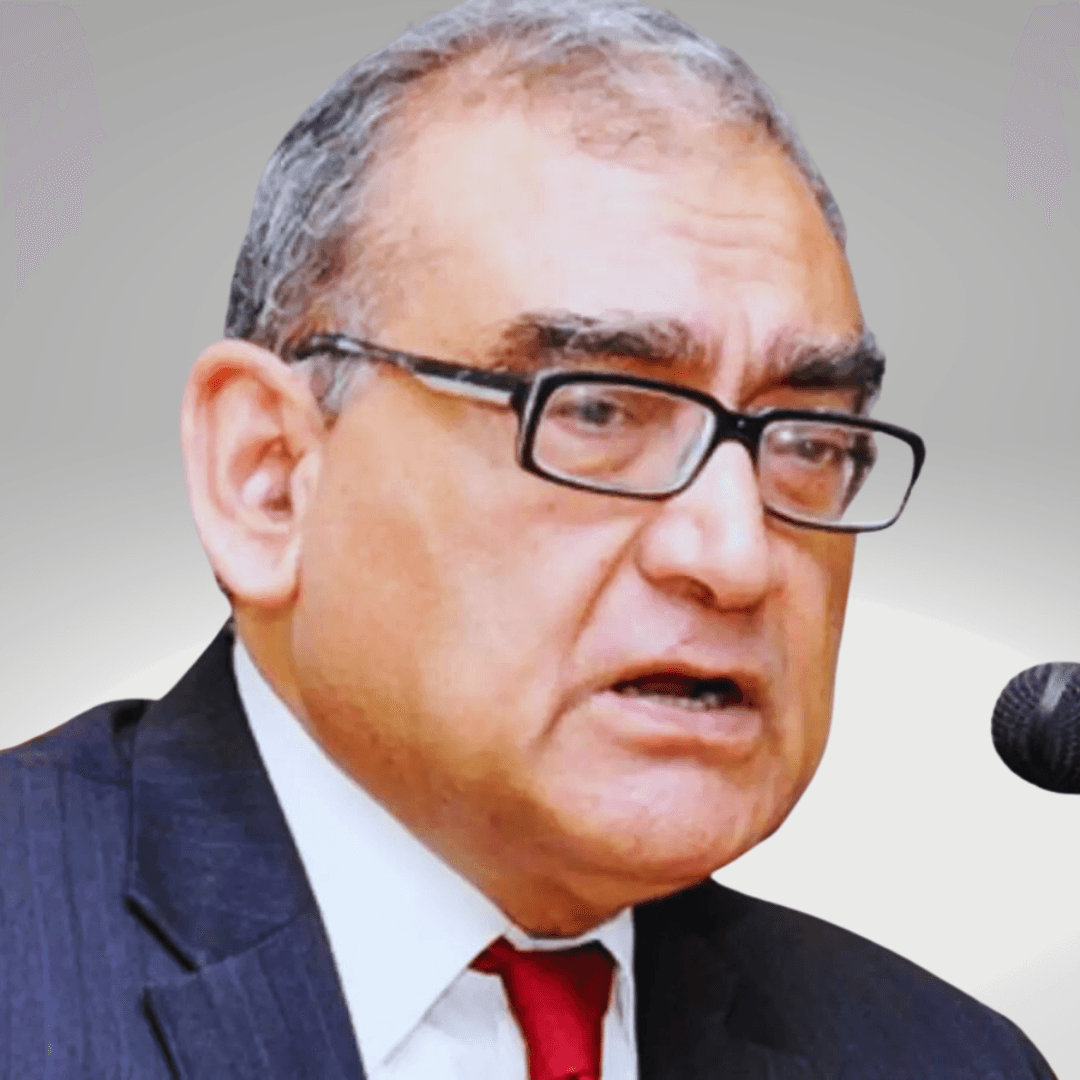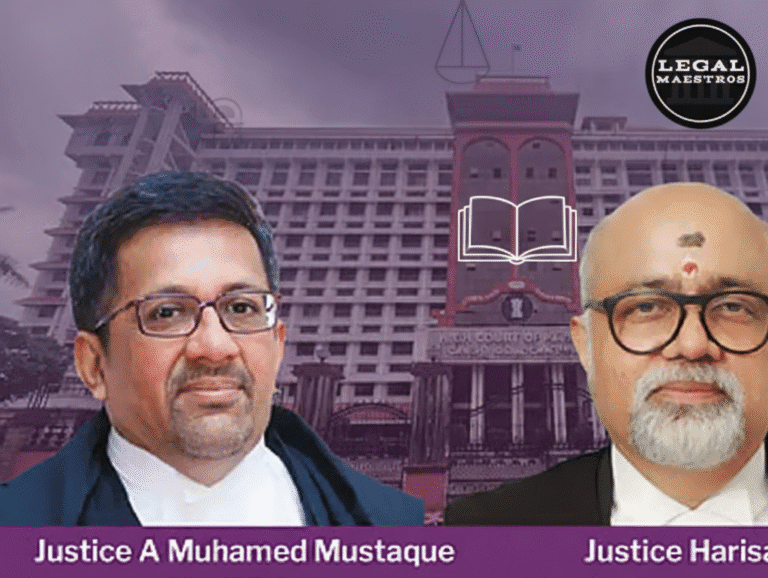
Kapil Sibal Opposes Waqf Law Argues Five-Year Islam Practice Clause Deemed Arbitrary and Unconstitutional
I saw on youtube today the panel discussion, whose link is below, hosted by my friend Kapil Sibal, MP, former Union Minister and senior advocate, Supreme Court
I regret to say I have rarely heard a more superficial analysis of the world situation, particularly India’s role in it. None of the speakers, which included my cousin Vivek Katju ( whom I greatly respect ), nor the anchor Kapil ( whom also I greatly respect ), nor the other panelists Mr Raghavan or Ms Suhasini Haider, seem to have any deep understanding of what is going on in the world, particularly in India. So let me explain.
There are two main forces working in the world today :
For any queries or to publish an article or post or advertisement on our platform, do call at +91 6377460764 or email us at contact@legalmaestros.com.
(1) The struggle of the underdeveloped countries in the world, including India, which comprise of perhaps 70% of the world’s population, to become developed nations, but which transformation the developed nations vehemently oppose.
(2) The hostility between two powerful alliances, i.e. USA and Europe on the one hand, and China and Russia on the other.
https://justicekatju.com/the-main-features-of-the-21st-century-e0acc96e50fe
For any queries or to publish an article or post or advertisement on our platform, do call at +91 6377460764 or email us at contact@legalmaestros.com.
Let us consider them one by one, and examine India’s situation in particular.
(1) The struggles of the underdeveloped countries
First let us discuss the people’s struggles in underdeveloped countries. These struggles are for making their countries developed ones, so that they may enjoy decent lives and a high standard of living.
For any queries or to publish an article or post or advertisement on our platform, do call at +91 6377460764 or email us at contact@legalmaestros.com.
Before the Industrial Revolution, which started in England around the beginning of the 18th century, and then spread to France, Germany, and many other parts of the world, there were feudal agricultural societies in most parts of the world.
In feudal societies the methods and tools of economic production were so backward and primitive that very little wealth could be generated by them. In much of Asia the bullock or buffalo, and in Europe the horse, was used for tilling the land. Consequently so little wealth was generated by the feudal methods of production that only a handful of people (kings, aristocrats, etc) could be rich, while the remaining vast majority (mostly peasants) had to live in abject poverty and ignorance. When the cake is small very few people can eat it.
(The above statement must, however, be qualified with a caveat that during the Mughal and Chinese empires, handicraft industry had grown enormously in many parts in the feudal era, so that a considerable number of people, mainly artisans, had risen above abject poverty.)
For any queries or to publish an article or post or advertisement on our platform, do call at +91 6377460764 or email us at contact@legalmaestros.com.
This situation drastically changed after the Industrial Revolution. Now a unique situation has developed in world history: now no one in the world need be poor. This is because modern industry is so big and so powerful that enough wealth can be generated to give everyone in the world a decent life. If society is organised on scientific lines, everyone can get well paying jobs, healthcare, nutritious food, education, housing, etc. No one need be poor.
In view of this unique situation which has been created after the Industrial Revolution, people all over the world are demanding that they, too, be given decent lives. The sad fact, however, is that the overwhelming majority of the people of the world, particularly in underdeveloped countries, are still poor, many extremely poor.
Why is this so? After all, almost 300 years have expired since the beginning of the Industrial Revolution. By now poverty, unemployment, hunger, etc., should have been abolished everywhere in the world. Why has that not happened?
For any queries or to publish an article or post or advertisement on our platform, do call at +91 6377460764 or email us at contact@legalmaestros.com.
The reason is that soon after the Industrial Revolution, a handful of countries in western Europe ( and later in North America ) quickly industrialised and grew relatively prosperous, but did not let others follow suit, thinking that the latter would become economic rivals. In fact, their industrialisation was aided by plunder and loot of their colonies, as England did in India, leaving the latter far poorer.
There are, in fact, now two worlds in the globe: (1) the developed world of North America, Europe, Japan, Australia and China and (2) the underdeveloped world of Asia (except China and Japan), Africa and Latin America.
The developed countries have a secret, strong, unwritten rule ( which they will never openly mention ), which is not to allow underdeveloped countries to become developed, as that would largely destroy their industries, throwing millions out of employment. To understand this one must go into economics, for politics is concentrated economics.
For any queries or to publish an article or post or advertisement on our platform, do call at +91 6377460764 or email us at contact@legalmaestros.com.
Cost of labour is a big chunk of the total cost of production, and so if labour is cheap, the cost of production is less, and then one can sell one’s goods at a cheaper price. There is competition in the market, and one businessman eliminates another not by guns or bombs but by underselling him, i.e. selling the same high-quality goods at a cheaper price.
Thus, China, which built up a massive industry after its Revolution of 1949, captured much of the markets in the world because it has much cheaper labour than in western countries. Western supermarkets are packed with Chinese goods, because they often sell at half the price at which western manufacturers can sell them (because of the expensive western labour).
Thus, countries which have cheap labour have a distinct advantage over countries which have expensive labour ( provided the former set up a massive industrial base ). If underdeveloped countries like India set up a massive industry, then with their cheap labour they will undersell the products of western industries, which will then collapse, because then who will buy their expensive products ? Will the developed countries easily permit that? Will they let their industries collapse, throwing millions out of employment ? No, they will oppose it tooth and nail.
For any queries or to publish an article or post or advertisement on our platform, do call at +91 6377460764 or email us at contact@legalmaestros.com.
And how do they oppose it? They oppose it by making people in underdeveloped countries, like India, fight each other on the basis of religion, race, language, caste, etc., instead of waging a united people’s struggle for emancipation from their socio-economic plight. This they do through the local politicians, of all parties, who are all objectively their loyal agents.
Thus there is a direct conflict between the interests of the developed countries, which do not want underdeveloped countries to become developed ones, and the interests of the underdeveloped countries whose enlightened sections realise that unless their country becomes developed it can never escape from abject poverty, massive unemployment, malnutrition, lack of healthcare, and other great socio-economic evils.
India is the most developed of the underdeveloped countries, and with its huge pool of technical talent and vast natural resources can quickly break into the ranks of the developed countries, provided it has genuinely patriotic and modern minded leaders.
For any queries or to publish an article or post or advertisement on our platform, do call at +91 6377460764 or email us at contact@legalmaestros.com.
https://www.linkedin.com/pulse/day-indian-markandey-katju
For any queries or to publish an article or post or advertisement on our platform, do call at +91 6377460764 or email us at contact@legalmaestros.com.
But if it does, it will give motivation and encouragement to other underdeveloped countries to do the same. Will the economies of the developed countries, which have expensive labour, not then collapse, throwing millions out of employment ?
(2) The hostility between the 2 powerful world alliances
The other feature in the world today is the hostility between the 2 alliances of powerful nations: USA and European countries on the one hand, and China and Russia on the other. This hostility is unlikely to grow into nuclear war, as that would destroy all, but it often leads to proxy wars between them, using their local agents. What is happening in South East Asia must be understood from that perspective, for the rivalry between these two powerful alliances is being played out here as well.
For any queries or to publish an article or post or advertisement on our platform, do call at +91 6377460764 or email us at contact@legalmaestros.com.
If utilised skilfully by the patriotic leaders of the underdeveloped countries, this hostility between the two alliances of powerful nations can be turned to the advantage of underdeveloped countries, as the Chinese leaders who later came to power in 1949 did during the conflict between Western nations and Japan in the Second World War.
Now having explained the above, let me come back to the panel discussion anchored by Kapil.
Some speakers said that liberalism has gone in India, being replaced by religious extremism. To my mind this has been overtly planned by some developed countries. China has become a headache and competitor to Western economies. Indian industry had grown exponentially since 1947, and so the fear in Western countries was that if India becomes another China, Western industries would collapse, as they would not be able to face the competition from India, which has cheap labour. That is why, through their local agents ( the present political leaders ) they stepped up hatred between Hindus and Muslims, so that united India could not emerge as a modern industrial giant ( for which it has all the potential ).
For any queries or to publish an article or post or advertisement on our platform, do call at +91 6377460764 or email us at contact@legalmaestros.com.
One may ask what is the evidence that the present atrocities on Muslims was planned by Western countries. I admit there is no direct evidence of this, but there is also a thing called circumstantial evidence. One has often to put 2 and 2 together to know the truth.
Other speakers said that anti-Indian sentiment has increased in countries neighbouring India, so India is isolated. To my mind that is because India is the most developed of the underdeveloped countries, and may well crash into the ranks of the developed countries unless stopped. The developed countries will oppose this eventuality hammer and tongs, so that is why they have erected a ring of hostile countries around India.
There was talk of recent developments in Nepal and Bangladesh. I have explained the developments in Nepal in my article below :
For any queries or to publish an article or post or advertisement on our platform, do call at +91 6377460764 or email us at contact@legalmaestros.com.
As regards developments in Bangladesh, I strongly suspect that the Chinese had a hand behind the students agitation, as the then Prime Minister Sheikh Hasina had become close to India, which China regards as its principal antagonist in South East Asia, which China seeks to dominate.
Other talk, like Suhasini putting the blame on covid, Raghavan putting the blame on governance failure, etc etc was to my mind mere claptrap, balderdash, and drivel.
None of the speakers nor the anchor went deep into the international forces and realities explained above. That is why I found the show totally superficial and perfunctory
For any queries or to publish an article or post or advertisement on our platform, do call at +91 6377460764 or email us at contact@legalmaestros.com.







![Research Assistantship @ Sahibnoor Singh Sindhu, [Remote; Stipend of Rs. 7.5k; Dec 2025 & Jan 2026]: Apply by Nov 14, 2025!](https://legalmaestros.com/wp-content/uploads/2025/11/Gemini_Generated_Image_s0k4u6s0k4u6s0k4-768x707.png)
![Karanjawala & Co Hiring Freshers for Legal Counsel [Immediate Joining; Full Time Position in Delhi]: Apply Now!](https://legalmaestros.com/wp-content/uploads/2025/11/Gemini_Generated_Image_52f8mg52f8mg52f8-768x711.png)
2 thoughts on “A totally superficial discussion By Justice Katju”